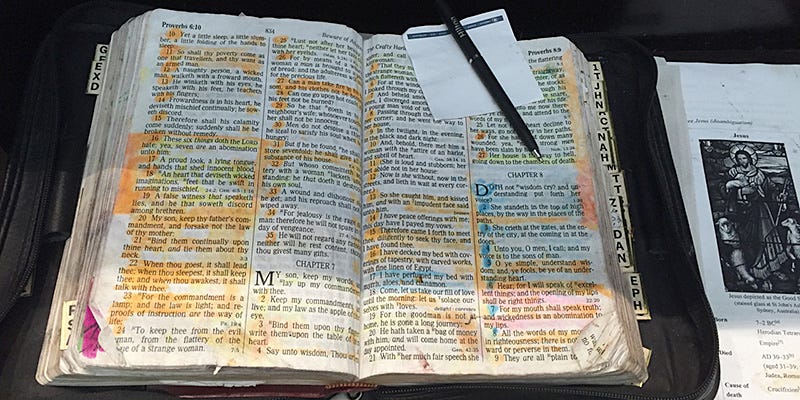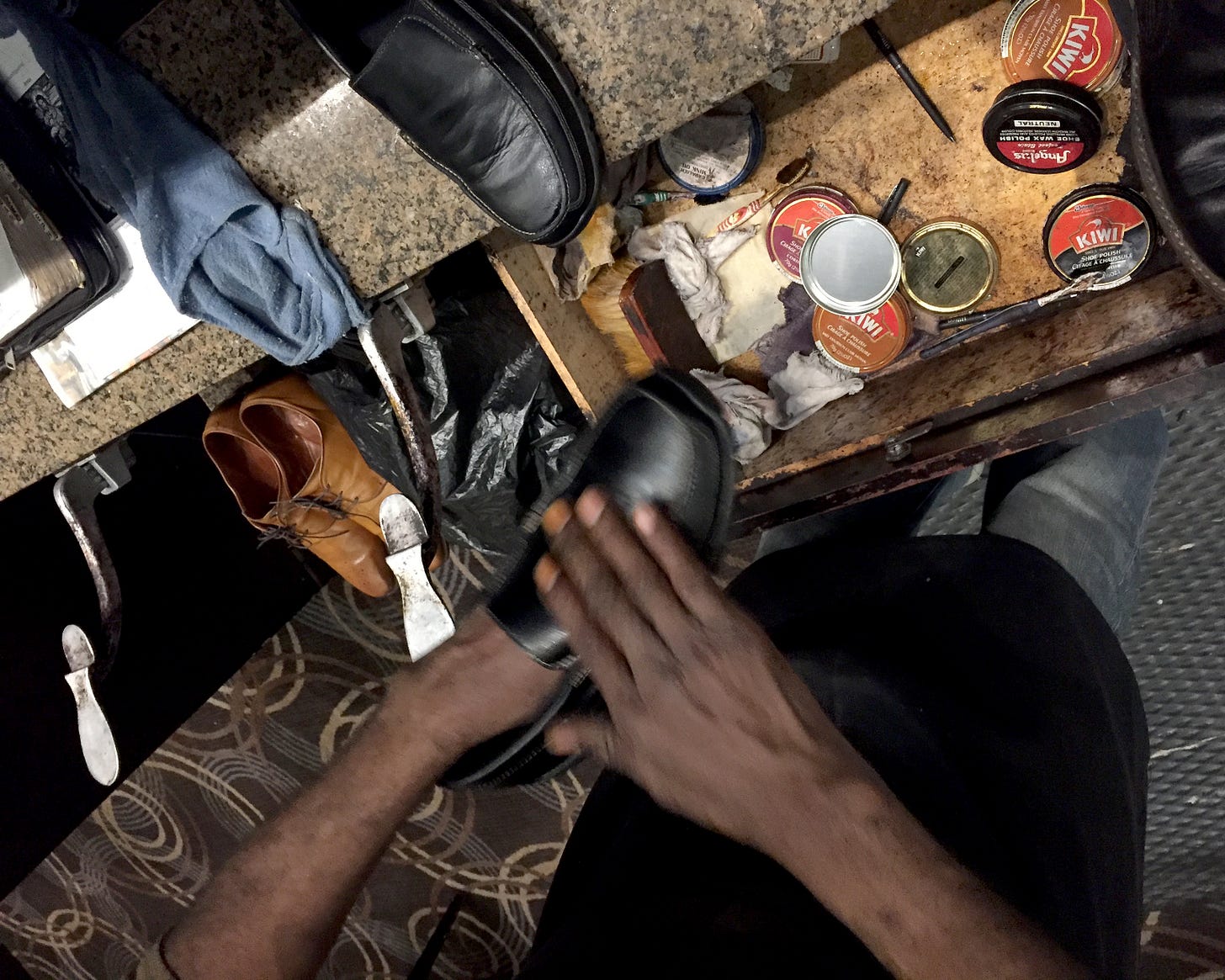Washing Feet, Shining Souls
Meet Lawrence. He’ll shine your shoes and refresh your spirit.
A shoe shine stand sits in a side cove of the lobby in St. Louis Hilton. It is a quiet time of the day— between check out and check in—when conferences are in session and guests are busy visiting the city.
What caught my attention was a book tucked to the left side of the stand, away from where customers would sit. The cove was empty; the shine stand was deserted; the book was the only indication that the stand was open.
The book was dog-eared, marked up, a rainbow of highlights turning the page into a canvas of memory and admonition.
I knew right then a shoeshine was in my future, and that is how I met Lawrence.
Lawrence helps his customers step onto the stand, where their shoes will be at a level where it’s easier to shine.
Lawrence is tall, which forces him to stoop slightly to serve his customers. He moves deliberately, precisely. When he’s working, he’s all business. When he’s not working, the book was placed where a man, accustomed to bending over, could read it.
“What’s your name? My name is Lawrence.”
Lawrence has been shining shoes for 41 years since he was 11. He shined shoes for Dean Martin and Sammy Davis Jr. (when a top-of-the-line shine paid 95¢ a pair, Martin paid him $20 a pair).
Ask Lawrence how he’s doing, and he’ll reply, “I’m blessed. I’m just happy to be here, serving you good people.” His voice is quiet, measured, and soothing.
Ask Lawrence his story, and he shares what should inspire any entrepreneur who has second thoughts about the amount of work it takes to launch her venture.
He told me his father had left his family, and Lawrence offered to help his mother with expenses as the oldest. She refused but instead asked him to take care of his siblings, and with that direction, he went out to find work.
His first job was as a runner at the St. Louis airport, returning luggage carts to their corals. His break came when the shoe shine attendant taught him how to shine shoes and gave him his first opportunity to shine after two weeks.
Forty-one years later, he’s put five siblings through college; as a single parent, he also has two children. In 2014, he completed a Bachelor of Science degree in Criminal Justice because “he wants to serve young people and the community that has been so good to him.”
Lawrence has learned the secret of entrepreneurship and worship, living and working by faith.
On slow days, his customers or the hotel staff make idle conversation. “It’s a slow day Lawrence. Not too many customers.”
“It’s OK; it’s OK. I’m not worried. I’m just thankful for who God has brought to me today. He’s giving me what I need.”
The shine stand, with the book placed where Lawrence could read from it, was not unlike an altar. To Lawrence, this stand, his stand, is a place of worship. The hotel is his cathedral, the lobby his chapel.
The book’s placement and the attendant’s role differ between these sacred spaces.
Visit many places of worship worldwide, and you’ll find an altar with a table in the center, upon which will be a book. In these houses of worship, there is a great tendency to serve the book, to make it the center of attention, and relegate those for whom it was intended to second priority.
In Lawrence’s house, the book is a reminder and guide for how he is called to love and serve people. Set to the side, yet ever-present. Always visible, a silent testament, yet never getting in the way of service.
The book is where Lawrence can read it; it sits at the same level as his customers’ feet. He has learned to follow the example of the one whom, although he was God, knelt to wash the dust from his companion’s travel-stained feet.
While his business may be shining shoes, Lawrence understands his calling. His customers come to him for a shine; they leave with the memory of a man who makes them feel like an old friend, who listens to their stories with quiet intent while he adds polish to the experience through stories of his life.
What brings his customers back, or makes their one-time shine memorable, is how Lawrence makes them feel.
When this shoe shine man isn’t shining shoes, he’s shining souls.



